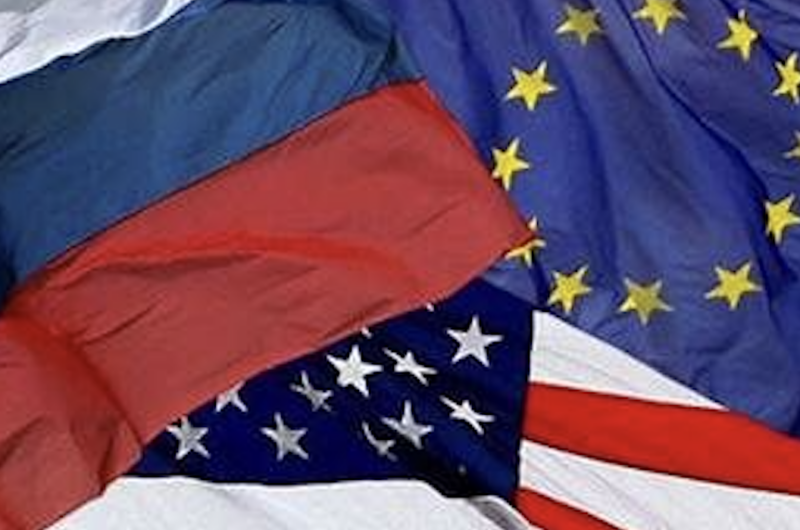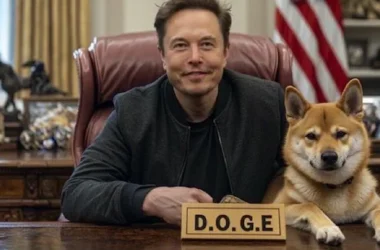In a significant diplomatic development, the United States has initiated discussions to ease certain sanctions imposed on Russia. This move aims to advance the Black Sea Grain Initiative, a crucial step toward resolving the ongoing conflict in Ukraine. Despite the European Union’s firm stance on maintaining sanctions until Russia’s complete withdrawal from Ukrainian territory, the U.S. is exploring avenues to facilitate peace through economic concessions. This initiative has sparked a wave of global reactions, underscoring the complexity of balancing economic restrictions with diplomatic efforts.
The Black Sea Grain Initiative
The Black Sea Grain Initiative, originally brokered in July 2022 by the United Nations and Turkey, was designed to ensure the safe passage of Ukrainian agricultural products through the Black Sea. In return, the West agreed to lift sanctions on Russian grain and fertilizer exports. However, the agreement faced challenges, leading to its eventual suspension. Recent negotiations have revived hopes for its reinstatement, with the U.S. playing a pivotal role in addressing Russia’s concerns.
Russian Foreign Minister Sergey Lavrov emphasized the importance of the deal, stating that it aims to restore Russia’s stable presence in grain and fertilizer markets, thereby ensuring global food security. “The Black Sea maritime security deal aims to restore Russia to stable grain and fertilizer markets, allowing for profit and ensuring global food security,” Lavrov stated in a recent interview.
U.S. Considerations and Commitments
President Donald Trump confirmed that his administration is contemplating the relaxation of specific sanctions against Moscow. He remarked, “They will be looking at them, and we’re thinking about all of them right now. There are about five or six conditions. We’re looking at all of them.” This indicates a comprehensive review of the sanctions framework in the context of promoting peace.
As part of the negotiations, the U.S. has agreed to assist Russia in boosting its agricultural exports and restoring access to international payment systems. This includes efforts to lower maritime insurance costs and enhance access to ports and financial transactions related to agricultural trade. Such measures are seen as essential for Russia to re-enter global markets effectively.
Divergent Perspectives: Ukraine and the European Union
Ukrainian President Volodymyr Zelensky has expressed strong opposition to any easing of sanctions on Russia. He contends that such actions would weaken the international stance against Russian aggression. “We did not agree to this so that it would be in a joint document. We believe that this is a weakening of positions and a weakening of sanctions,” Zelensky stated.
The European Union echoes this sentiment, maintaining that any amendment or lifting of sanctions is contingent upon Russia’s complete and unconditional withdrawal from Ukrainian territory. A European Commission spokesperson emphasized, “The complete and unconditional withdrawal of Russian military forces from Ukraine is a fundamental prerequisite for amending or lifting EU sanctions on Russia.”
Global Reactions: A Mixed Response
The prospect of sanction relief has drawn mixed reactions from international actors. China and India, both of which have maintained economic ties with Russia despite Western sanctions, have welcomed the initiative. Beijing has called it a “constructive step toward stabilizing global trade,” while New Delhi has emphasized the importance of ensuring food security for developing nations.
On the other hand, NATO allies such as Poland and the Baltic states have voiced strong objections. Lithuanian Foreign Minister Gabrielius Landsbergis criticized the U.S. approach, stating, “Any concession to Russia will be interpreted as weakness. We cannot afford to compromise on principles.”
Meanwhile, African nations that depend on both Russian and Ukrainian grain exports have cautiously supported the move, highlighting the need to mitigate disruptions in food supply chains. The African Union released a statement urging “a balanced approach that ensures fair access to food resources for all nations.”
While the EU remains steadfast in its sanctions regime, it has taken care to ensure that these measures do not impede the supply of essential goods. The EU has clarified that its sanctions do not target the trade of agricultural and food products, including cereals and fertilizers, between third countries and Russia. This approach aims to mitigate any adverse effects on global food security.
The United Nations has similarly emphasized the humanitarian implications of prolonged sanctions. UN Secretary-General António Guterres stated, “Sanctions should never be a barrier to ensuring food and energy security for the most vulnerable populations around the world.”
Challenges and Opportunities
The U.S. initiative to consider easing sanctions represents a pragmatic approach to conflict resolution, recognizing that economic incentives can play a crucial role in diplomatic negotiations. By addressing Russia’s economic concerns, there is potential to create an environment conducive to peace talks and conflict de-escalation.
However, this approach is not without challenges. The divergence between U.S. strategies and the EU’s firm stance underscores the complexity of international diplomacy. Aligning the interests and policies of multiple stakeholders requires nuanced negotiations and a commitment to shared objectives.
Further, the upcoming U.S. elections could influence the trajectory of these negotiations. A shift in administration could either reinforce or reverse the current strategy, adding another layer of uncertainty to the diplomatic process.
The U.S. consideration of easing certain sanctions on Russia, aimed at advancing the Black Sea Grain Initiative, reflects a strategic effort to leverage economic tools for peace. Balancing economic incentives with political demands remains a delicate endeavor, but it holds the promise of fostering conditions that could lead to a sustainable resolution of the conflict in Ukraine.
As global reactions continue to shape the debate, the decision to lift or maintain sanctions on Russia will be a defining moment in international relations. Whether this move facilitates genuine peace efforts or further complicates the geopolitical landscape remains to be seen, but what is clear is that the stakes could not be higher.




